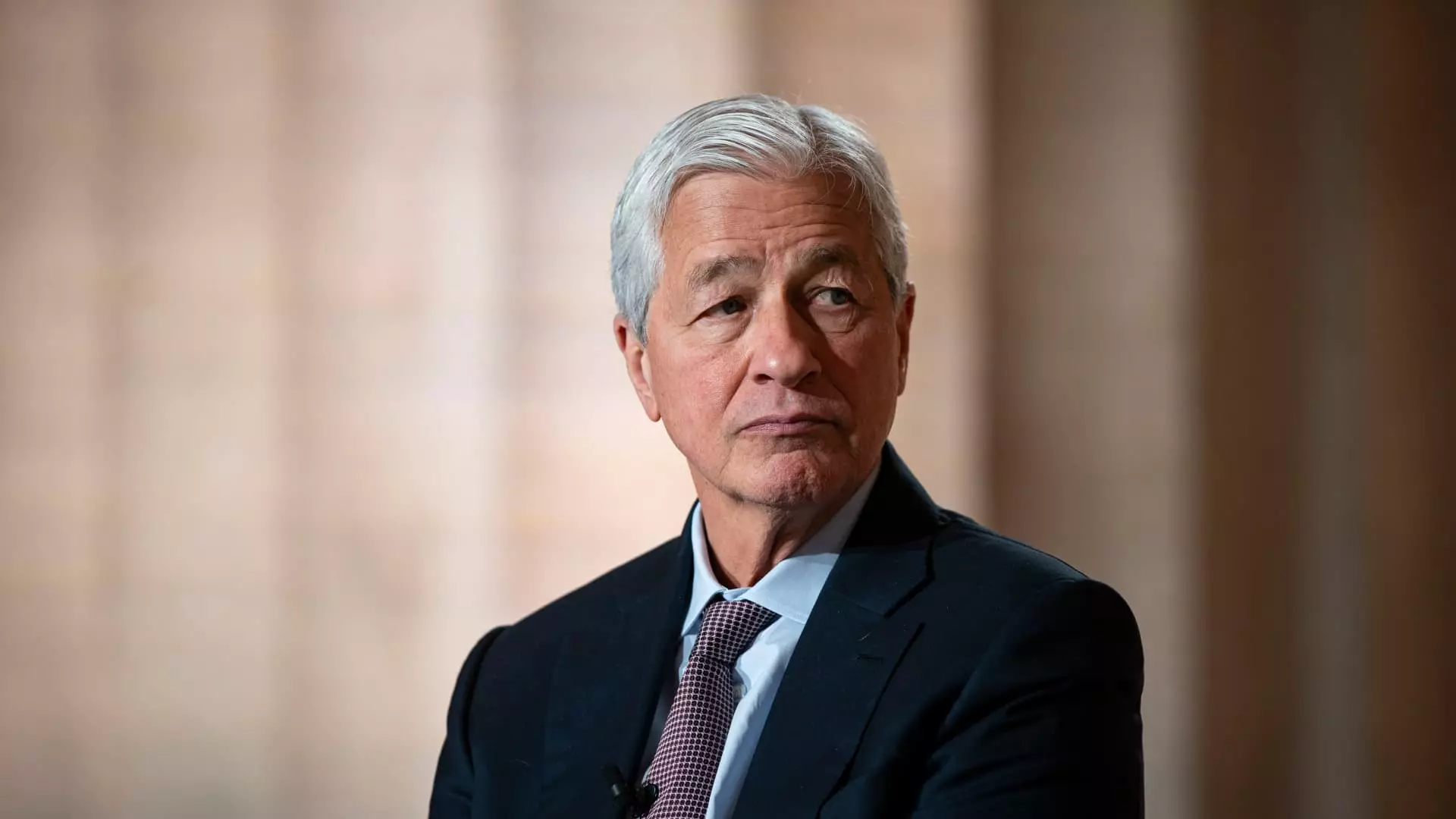The economic climate of the United States has always been a delicate balance of growth and stability, yet recent pronouncements from notable figures, such as JPMorgan Chase CEO Jamie Dimon, throw into sharp relief the potential for a downturn. Dimon’s assertion that the economy is likely headed for a recession, particularly in light of escalating trade tensions between the U.S. and China, isn’t merely alarmism; it reflects a growing unease that is resonating through the financial markets. His remarks during a Fox Business interview illuminated the jittery nature of Wall Street, which, under the strain from uncertainty, may be pricing in a storm that’s brewing.
What makes Dimon’s commentary especially compelling is not just his stature as a banking magnate but the nuanced implications of his statements. As someone who has historically been in favor of tariffs — deeming them necessary for national security — he now stands at the crossroads of understanding their weight on the economy. Dimon recognizes that the unrelenting cycle of retaliation and counter-retaliation in trade policies can have crippling effects on consumer sentiment, which in turn can derail economic momentum.
The Perils of Market Reaction
Dimon’s observation about market behaviors feeding into themselves is critical to grasping the core of why this recession warning deserves attention. The financial markets revel in feeding frenzies, where declines can spur panic selling and an overarching fear that then cascades downward. A 2000-point drop in the Dow, as he referred to, is not just a numeral; it’s a palpitation of collective anxiety, a stark reminder of how perceptions can become reality. Every investor glued to their screens is acutely aware that today’s decisions could deplete the value of their pension plans and 401(k)s, invoking a knee-jerk reaction that favors saving over spending. This push-and-pull directly impacts broader economic indicators like GDP and consumer spending.
Moreover, when China’s recent announcement of an 84% tariff increase on U.S. goods reverberates through the markets, it galvanizes fears not just of reduced exports but of a possible full-blown trade war. When traders see such drastic measures taken, it signals a volatile landscape, further contributing to bearish sentiments. Dimon, in his statements, seems to advocate for a rational approach amid chaos — urging negotiations and clarity where there is uncertainty.
Negotiations: The Path Forward
What is particularly unifying in Dimon’s message is his push for renewed dialogue and trade agreements. The call to “take a deep breath” stands out as both an appeal for patience and a pragmatic approach to governance and economic management. The importance of diplomatic ties cannot be overstated; they form the bedrock of a stable economic environment. By encouraging the U.S. to reach out and renegotiate trade deals, Dimon implicitly critiques a more isolationist stance, advocating instead for engagement and cooperation even in difficult times.
It is also worth noting that Dimon’s prior assertions about tariffs — viewing them as a slight cost for security — underscore a shifting economic ethos in light of potential recessionary fears. With the threat of eroded consumer confidence looming, any short-sighted focus on punitive tariffs could yield disastrous long-term consequences. A collaborative effort along with strategic modifications in trade policy could reinstate a sense of optimism rather than defeatism.
The Role of Leadership in Economic Stability
As Dimon emphasizes the need for strong leadership, one cannot ignore the vital role that figures such as Fed Governor Michelle Bowman may play in shaping responses to economic hazards. The Senate’s confirmation process for Bowman’s appointment as vice chair for supervision carries weighty implications for the banking sector’s future regulation. The leadership at the Federal Reserve will be critical in navigating the shifting terrain of monetary policy, especially during times filled with uncertainties and fears of recession.
Her potential influence could provide a stabilizing force, offering guidance that prioritizes the broader needs of both businesses and consumers. A well-aligned leadership within the Fed and financial institutions can temper market volatility, restore consumer faith, and cultivate an environment conducive to growth amid challenges.
In essence, while Dimon’s forecast looms as a warning of a possible economic downturn, it equally stands as a clarion call for strategic actions and meaningful negotiations. Recognizing the interconnectedness of trade, consumer confidence, and leadership in finance could pave the way for a more resilient economic future.


Leave a Reply